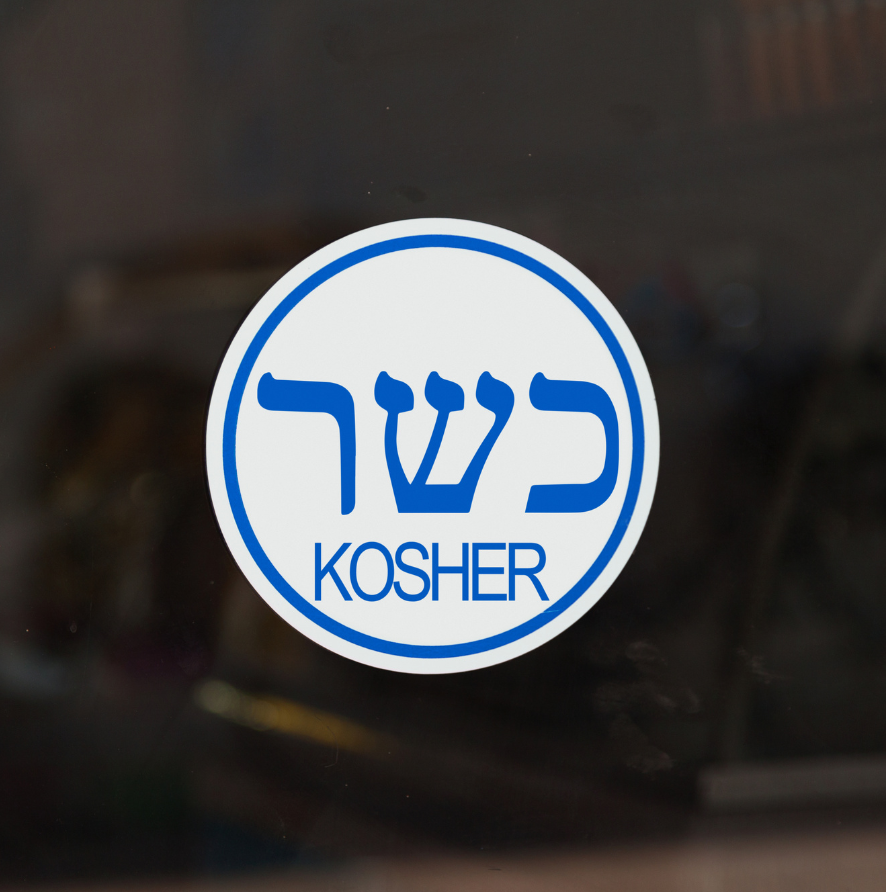
Kosher certification is a crucial aspect of Jewish dietary law compliance, and in South Africa, it holds significant importance for several reasons:
For the Jewish community in South Africa, Kosher certification is essential for maintaining their cultural and religious practices. It allows individuals to adhere to their beliefs in a society that is diverse and where Kosher products might not be readily distinguishable without certification. The presence of a Kosher mark assures the community that they are consuming products that align with their dietary laws, known as kashrut.
With a certified Kosher label, consumers are guaranteed that the food they purchase and consume is compliant with Jewish dietary regulations. This creates a strong sense of trust between consumers and producers, as the certification serves as a promise of quality and adherence to specific standards.
Kosher certification opens up market opportunities for South African producers not only within the Jewish community but also among other groups who prefer Kosher products for health reasons, food safety concerns, or other ethical considerations. This expansion can lead to increased economic activity and opportunities for local businesses.
South Africa, being a part of the global market, benefits from Kosher certification as it ensures that South African products can meet the global standards required for export to countries with significant Jewish populations or where Kosher products are in demand. This compliance is critical for South African producers looking to expand their reach into international markets.
By acknowledging and accommodating the dietary requirements of its Jewish population through Kosher certification, South Africa promotes a message of inclusivity and respect for diversity. This fosters interfaith harmony and cultural sensitivity, which are essential values in a country marked by its varied ethnic and cultural tapestry.
Kosher certification agencies in South Africa also play an educational role by informing the public about the principles of kashrut. They help to demystify Jewish dietary laws for non-Jewish consumers and producers, promoting understanding and respect for these practices.
For Jewish travellers and tourists, the availability of Kosher-certified products is a determining factor when choosing a destination. South Africa, with its certified Kosher products, positions itself as a welcoming destination for these travellers, which can positively impact the tourism industry.

The detailed historical context of Jewish history in South Africa and the development of Kosher practices in the South African Jewish community is rich and multifaceted. Here’s an overview:
The Jewish presence in South Africa traces back to the early modern era of Portuguese exploration, although a permanent community wasn’t established until the Dutch colonization. The Jewish population saw significant growth during British colonial rule in the 19th century, swelling from 4,000 to over 40,000 between 1880 and 1914. Jews in South Africa have been influential in various sectors, including the wool industry, diamond industry, and even politics, although they also faced antisemitism and exclusion at times.
The first Jews in South Africa were explorers and cartographers working for the Portuguese Crown, seeking a sea route to India. The earliest Jewish congregation in South Africa was established in the 1820s, and by the 1840s, Jewish communities were contributing significantly to commerce and industry.
In the early days of the Dutch East India Company’s settlement at the Cape of Good Hope, non-practising Jews were among the settlers. However, religious freedom was limited until the Dutch authorities granted it in 1803, a policy confirmed by the British when they occupied the colony in 1805.
The development of Kosher practices paralleled the growth of the Jewish community. As the population increased, so did the need for proper religious infrastructure, including synagogues and Kosher food. The first congregation, the Gardens Shul, was founded in 1841, setting a precedent for community organization and religious practice, which would naturally include the observance of Kashrut – the Jewish dietary laws.
While the detailed development of Kosher practices specifically in South Africa isn’t readily available in the sources, it’s clear that with the establishment of congregations and the growth of the community, Kosher practices would have been established and observed according to traditional Jewish law, adapting to the local context of South Africa.
Kosher certification is an important aspect for many Jewish and non-Jewish consumers alike, ensuring that food products adhere to the dietary laws of kashrut. In South Africa, several agencies provide this certification, each with its own role and impact on the community and industry.
Each kosher certification agency plays a pivotal role in maintaining kosher standards, providing certification services, and contributing to the economic and cultural fabric of the South African Jewish community. Their efforts facilitate the availability of kosher products, support local and international trade, and ensure that the Jewish dietary laws are accessible and observed within the region.
The process of Kosher certification in South Africa involves several meticulous steps, designed to ensure that all products meet the strict standards required by Jewish dietary law. Below is a detailed overview of the criteria and processes involved, as well as the roles played by rabbis and inspectors in this system.
The criteria for Kosher certification revolve around the adherence to Jewish dietary laws or kashrut. These laws dictate which foods are permissible and how they must be prepared and processed. Some general criteria include:
Application: A business seeking Kosher certification must fill out an application providing logistical information about the company and plant. A Rabbinic Coordinator is assigned to manage the application and guide the company through the certification process.
In-Plant Consultation: A qualified Rabbinic Field Representative visits the plant to observe operations and assess the feasibility of certifying the products. They will conduct a thorough inspection, file a report, and may require processing fees and travel expenses.
Assessment: The Rabbinic Coordinator reviews the application and inspection report to determine whether certification can be granted. Modifications to the production system may be required to meet Kosher standards.
Contract: If the assessment is positive, a contract including all requirements for Kosher certification is drafted. Once the contract is signed, a letter of certification is issued.
Label Approval: Product labels bearing the Kosher certification symbol are submitted for final approval by the kosher certifying agency.
Certification Granted: Upon completion of all steps and approval of labels, the company receives the Kosher certification, allowing them to use the Kosher symbol, and they are added to the Kosher food database.
Rabbis and inspectors are integral to the Kosher certification process. Rabbis, often with specialized training in the laws of kashrut, oversee the entire certification process, ensure compliance with Jewish dietary laws, and make decisions regarding the Kosher status of products. Inspectors, who may also be rabbis, are responsible for the physical inspection of production facilities. They check the ingredients, the production process, and the equipment used to ensure that everything complies with Kosher standards.
The Kosher certification process in South Africa is a rigorous and comprehensive system that ensures Jewish dietary laws are meticulously followed, instilling confidence among consumers and providing businesses with access to a valuable market. With over $150 billion in Kosher products consumed annually worldwide, the certification opens up significant opportunities for businesses in South Africa and beyond.
For the Jewish communities in South Africa, Kosher certification plays a pivotal role in day-to-day life, reflecting a commitment to religious traditions and cultural practices. The availability of Kosher-certified products directly impacts the observance of dietary laws, which is a cornerstone of Jewish life. It also has a communal aspect, as Kosher certification can foster unity and identity within the community, reassuring them that they can participate fully in societal functions while adhering to their dietary restrictions.
The presence of Kosher certification helps to facilitate religious observances and festivals, where food plays a central role. For example, during Passover, Kosher certification ensures the availability of products that meet the even stricter Passover Kashrut laws. Moreover, Kosher certification can serve as an educational tool within the Jewish community, helping to inform and remind members of the details and importance of their dietary laws.
For food producers and businesses, the impact of Kosher certification is significant in several ways. It allows them to tap into the niche market of Kosher food consumers, not only within the Jewish community but also beyond it, including Muslims who eat Halal, vegetarians, and others who view Kosher certification as a mark of quality and food safety.
The certification process can also lead to improvements in production processes. As businesses adapt to comply with Kosher standards, they often enhance their overall manufacturing practices and quality control procedures, benefiting all consumers. Additionally, Kosher certification can be a gateway to international markets, as it is often a requirement for exporting to countries with large Jewish populations or those who prefer Kosher products for various reasons.
Kosher certification may also increase consumer trust in a brand, as it reflects a willingness to undergo rigorous and transparent production standards. This trust can lead to increased brand loyalty and a broader consumer base. For many businesses, this can result in long-term growth and sustainability, as well as an enhanced reputation within the marketplace.
Overall, Kosher certification has far-reaching impacts beyond just compliance with dietary laws. It affects social practices, economic opportunities, and the perception of quality in food production and consumption.
One of the foremost challenges in Kosher certification is aligning local practices with global Kosher standards. As international Kosher regulatory bodies often set these standards, South African agencies must ensure that their certification is universally recognized. This requires a meticulous understanding of varying international Kosher laws and continuous updates to certification processes as these standards evolve. Moreover, producers must be educated about these standards and motivated to comply, which can be challenging if the perceived benefits do not outweigh the costs of implementation.
South Africa’s market is characterized by its diversity, with a multitude of ethnicities, cultures, and religions, each with unique dietary needs and preferences. Navigating this complexity to provide Kosher certification that satisfies all segments of the Jewish community, as well as other groups that rely on Kosher products, is a logistical challenge. The process requires a robust infrastructure to handle the certification of a wide range of products, constant communication with various stakeholders, and a flexible approach to certification that can adapt to the varied needs of a complex consumer base.
The future of Kosher certification in South Africa seems poised for growth, driven by increasing demand from both Jewish and non-Jewish consumers. One emerging trend is the growing awareness and demand for ethical and sustainable food production, which Kosher certification can encapsulate.
Education is likely to play a critical role in the future of Kosher certification. As the community becomes more involved in understanding and valuing the principles behind Kosher food, the demand and support for certification are likely to grow. Community-based programs that educate about the benefits of Kosher certification, as well as initiatives that involve community members in the certification process, can help to strengthen the commitment to Kosher standards. These efforts can ensure that Kosher certification remains relevant and respected, not just as a religious requirement, but as a community-supported mark of quality and integrity.
MK Kosher, with over a hundred years of global legacy, offer a tailored kosher certification experience in South Africa, listening to the individual stories of businesses and ensuring their brand’s uniqueness is maintained alongside strict kosher standards. MK Kosher also emphasizes compliance and food safety, using rabbinic authorities and modern technologies to navigate the complexities of modern food production. They view certification as a strategic partnership, aiming to unlock growth and market expansion for businesses aligning with them.